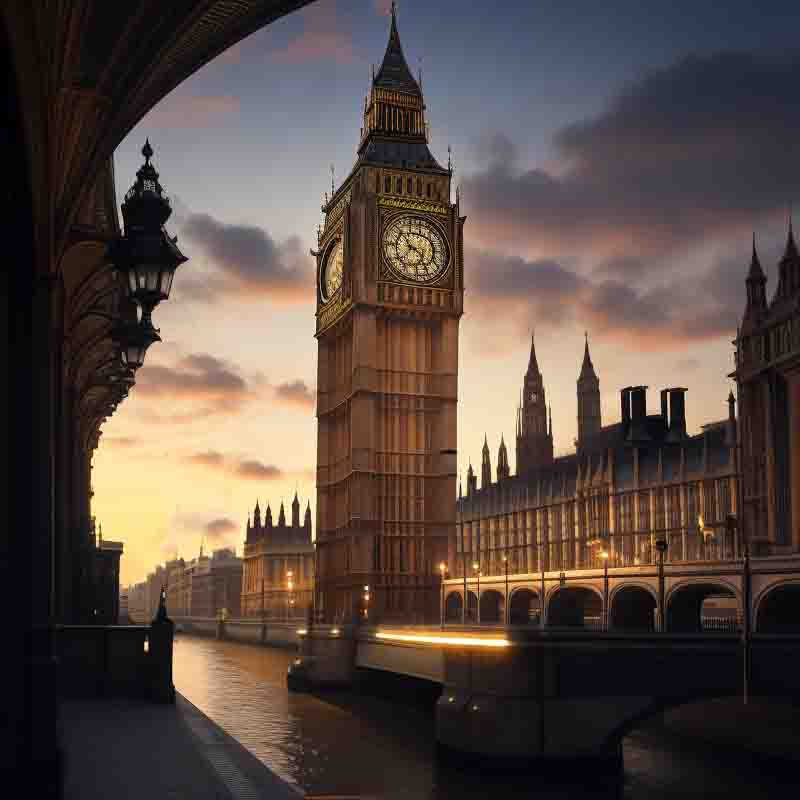Explore the Heartbeat of the City: Your Ultimate Urban Travel Guide
In the context of urban landscapes, a city guide provide indispensable information about the sights and attractions of a location. A well-designed travel guide serves as a portal to engaging experiences by offering a curated trip through the inner workings of a metropolis.
Crafting Unforgettable Urban Memories
A city guide enables you to move efficiently through a city's significant sights and attractions.
It provides valuable tips for choosing the best routes, the best time to visit and how to discover the historical context that makes each place a source of unforgettable memories.
A city guide provides travelers with detailed insights into local attractions, dining options, cultural sights and practical tips. The guide optimizes the user's travel experience with focused recommendations based on tastes, interests, and preferences.
The History of City Guides
| Time Period | Key Developments | |
|---|---|---|
| 1825 | Baedeker's Guidebook: Karl Baedeker publishes the first comprehensive travel guidebook, focusing on Europe. | |
| 1900 | Michelin Guide: The Michelin Guide is introduced by the French tire company Michelin, initially as a resource for drivers, later evolving into a prestigious culinary and hotel guide. | |
| 1936 | Blue Guide Series: The Blue Guides, known for their cultural and historical depth, are established as a series covering European destinations. | |
| 1960s | Rick Steves' Europe: Rick Steves begins publishing travel guides, emphasizing budget travel and cultural exploration, particularly in Europe | |
| 1972 | Lonely Planet: Tony Wheeler and Maureen Wheeler start the iconic Lonely Planet series, focusing on budget travel and off-the-beaten-path destinations. | |
| 1990s | Emergence of Digital Guides: CD-ROMs and early digital guides start to gain popularity, providing interactive maps and multimedia content. | |
| 2000s | Rise of Online Travel Platforms: Websites like TripAdvisor and Yelp become prominent, allowing users to review and discover city attractions. | |
| 2008 | Introduction of Mobile Apps: The advent of smartphones leads to the development of mobile applications for city guides, making information accessible on-the-go. | |
| 2010s | Integration of Augmented Reality (AR): City guides start incorporating AR features for enhanced navigation and immersive experiences. | |
| 2012 | Google Maps Explore: Google introduces the 'Explore' feature in Google Maps, providing recommendations and information about local businesses and attractions. | |
| 2014 | Airbnb Experiences: Airbnb expands beyond accommodations, introducing "Experiences" that offer guided tours and activities hosted by locals. | |
| 2016 | Chatbot City Guides: Development of chatbot-based city guides that interact with users in a conversational manner, offering personalized recommendations. | |
| 2018 | Voice-Activated Guides: Integration of voice-activated technologies like Amazon's Alexa and Google Assistant into city guide applications. | |
| 2020s | AI-Powered Personalization: City guides leverage artificial intelligence to provide highly personalized recommendations based on user preferences. | |
| Present | Real-Time Updates and Social Integration: City guides offer real-time information, and integration with social media allows users to share and discover recommendations. |
This timeline captures key milestones in the evolution of city guides, from traditional guidebooks to the digital and AI-powered solutions we have today.
The Essence of City Guides
From their historical evolution to their evolving role in the digital age, city guides continue to shape how we navigate and understand cities.
Empowered with comprehensive content, customization features, and technological innovations, city guides have become indispensable tools for the modern traveler.
As we step into the future, where AI and VR redefine exploration, city guides stand poised as integral companions, ensuring that every journey through a city is an unforgettable and personalized adventure.
Defining City Guides
City guides are literary or digital companions designed to aid travelers in navigating and experiencing a city's offerings.
These guides encapsulate a wealth of information, from essential logistics to insightful recommendations, ensuring that every traveler, whether a first-timer or a seasoned urbanite, can make the most of their visit.
Their roots trace back to printed materials distributed at hotels or tourist centers, evolving today into sophisticated mobile applications, interactive maps, and online platforms that cater to the modern, tech-savvy explorer.
Types of City Guides
In the realm of city guides, a dichotomy exists between traditional and digital formats.
Traditional guides, often in the form of books or brochures, provide a tangible reference for those who appreciate flipping through pages and marking highlights.
On the other hand, digital guides leverage technology, offering interactive maps, real-time updates, and personalized itineraries accessible on smartphones and tablets.
The contemporary traveler is presented with a spectrum of choices, each catering to different preferences and enhancing the overall exploration experience.
Comprehensive Content: The Perfect City Guide
A city guide's efficacy hinges on the comprehensiveness of its content.
From must-visit landmarks to hidden gems tucked away in neighborhoods, a well-crafted guide provides a detailed tapestry of a city's offerings.
Descriptions are not mere lists of attractions; they delve into historical backgrounds, architectural significance, and the cultural context, transforming each entry into a narrative that enriches the traveler's understanding.
Customization Features
Modern city guides have evolved beyond one-size-fits-all approaches.
Recognizing the diverse preferences of travelers, customization features have become paramount.
Whether tailoring itineraries based on interests or providing real-time updates, city guides now function as personalized companions, ensuring that each traveler's journey is as unique as their fingerprint.
User-friendly interfaces further enhance the experience, making exploration intuitive and enjoyable.
Multilingual Support
In an era of global travel, language should not be a barrier to exploration.
Multilingual support in city guides bridges this gap, ensuring that international travelers can access information in their preferred language.
This feature not only enhances accessibility but also fosters inclusivity, welcoming a broader audience and enriching their understanding of the city they explore.
Transportation Insights
Navigating the intricate web of urban transportation is a significant aspect of city exploration.
City guides provide insights into public transport systems, guiding travelers through bus routes, metro lines, and the nuances of rideshare services.
Tips for efficient navigation and understanding the intricacies of local transit contribute to a seamless and stress-free exploration experience.
Accommodation Recommendations
Selecting the right accommodation significantly influences a traveler's experience.
City guides curate a list of diverse lodging options, from luxurious hotels to cozy boutique stays.
The inclusion of unique and eco-friendly accommodations aligns with the growing trend of conscious travel, allowing explorers to make choices that resonate with their values.
Culinary Exploration
Food is a fundamental gateway to understanding a city's culture.
City guides curate culinary experiences, showcasing local gastronomy and highlighting popular eateries.
From street food gems to upscale dining, these guides provide a gastronomic roadmap, ensuring that travelers savor the flavors that define a city.
Cultural Immersion Opportunities
Beyond landmarks and culinary delights, city guides illuminate cultural immersion opportunities.
These include festivals, events, and experiences that offer a deeper understanding of local traditions.
By connecting travelers with the cultural heartbeat of a city, these guides foster a more meaningful and enriching exploration.
Augmented Reality Integration
The integration of augmented reality (AR) elevates city guides to new heights of interactivity.
AR features provide real-time overlays on the physical world, offering users an enhanced view of their surroundings.
From historical information popping up when looking at landmarks to virtual guides leading the way, AR transforms city exploration into an immersive and educational experience.
Social Media Integration
City guides leverage the power of social media to enhance the exploration journey.
Integration with platforms like Instagram, Twitter, and Facebook allows for real-time updates, user-generated content sharing, and community engagement.
Travelers can share their experiences, discover hidden gems from others, and connect with a virtual community of fellow explorers.
Information Accuracy and Updates
City landscapes are dynamic, with changes occurring frequently.
Maintaining the accuracy of information in city guides poses a challenge.
To address this, regular updates, user feedback mechanisms, and collaboration with local authorities become integral in ensuring that the information presented is current and reliable.
Balancing Popular and Hidden Gems
While popular attractions are magnets for tourists, city guides face the challenge of promoting a balanced exploration experience.
To mitigate overcrowding and ensure sustainability, guides must encourage the discovery of hidden gems, fostering a more nuanced and authentic connection with the city.
Eco-Friendly Exploration Tips
Promoting eco-friendly exploration is a responsibility shouldered by city guides.
They guide travelers toward green transportation options, such as cycling or electric vehicles, and highlight sustainable accommodation choices.
By incorporating these tips, city guides contribute to a more environmentally conscious approach to urban exploration.
Responsible Tourism Initiatives
City guides play a pivotal role in fostering responsible tourism.
They support initiatives that contribute to the well-being of local communities, emphasize cultural preservation, and promote environmentally friendly practices.
By aligning with responsible tourism values, city guides empower travelers to make choices that leave a positive impact on the places they visit.
AI and Personalized Recommendations
The future of city guides lies in the integration of artificial intelligence (AI) for personalized recommendations.
By understanding user preferences, AI algorithms can curate tailored suggestions, ensuring that each traveler's city exploration aligns with their unique interests.
Predictive analytics further refine the recommendations, creating a more intuitive and user-centric experience.
Integration of Virtual Reality (VR)
Virtual reality (VR) emerges as a transformative element in the future of city guides.
The integration of VR technologies allows users to embark on virtual city tours, offering immersive experiences that go beyond traditional guide formats.
Simulations and interactive scenarios bring cities to life, providing a preview of exploration possibilities.
Navigating the Urban Jungle: A Comprehensive Guide to Exploring Cities
Embarking on an urban adventure can be an exhilarating experience, but successfully navigating and exploring a bustling metropolis requires a combination of preparedness, cultural awareness, and a thirst for immersive experiences.
Whether you're a seasoned traveler or a first-timer in a vibrant city, these comprehensive tips will ensure you make the most of your urban exploration while prioritizing safety, respecting local cultures, and creating lasting memories.
-
Research Your Destination: Before setting foot in a city, conduct thorough research on its neighborhoods, crime rates, and any areas to avoid. Utilize online resources, travel forums, and local guides to gather valuable insights.
-
Stay Informed: Keep abreast of local news and events during your stay. Familiarize yourself with emergency contact numbers, healthcare facilities, and the location of your country's embassy or consulate.
-
Blend In: Dress like a local to avoid standing out as a tourist. While this won't make you invisible, it can deter unwanted attention. Additionally, be discreet with valuable items to minimize the risk of theft.
-
Use Reputable Transportation: Opt for recognized transportation options, such as licensed taxis and well-known ride-sharing services. Be cautious of unmarked vehicles and ensure that any transportation apps you use are legitimate.
-
Be Aware of Surroundings: Stay alert and mindful of your surroundings, especially in crowded areas. Keep valuables secure, and be cautious of pickpockets in tourist-heavy locations.
-
Choose Accommodations Wisely: Select accommodations in safe neighborhoods, and read reviews from fellow travelers. Consider factors like proximity to public transportation and well-lit streets.
-
Learn Basic Phrases: Familiarize yourself with common phrases in the local language. Locals appreciate when visitors make an effort to communicate in their native tongue.
-
Observe Local Customs: Pay attention to cultural norms, greetings, and gestures. Different cultures have varying expectations of personal space and communication styles.
-
Respect Sacred Spaces: When visiting religious or sacred sites, adhere to dress codes and respect rules regarding photography and behavior. Maintain a quiet and reverent demeanor.
-
Participate Responsibly: If you join local festivities or events, participate respectfully. Learn about local traditions, and refrain from behaviors that might be considered disrespectful.
-
Dress Appropriately: Be mindful of local dress codes, especially in conservative areas. Avoid clothing that may be considered inappropriate or offensive.
-
Understand Local Customs: Familiarize yourself with local customs related to tipping, bargaining, and other social interactions. Being culturally aware enhances your overall experience and fosters positive connections with locals.
-
Take Guided Walking Tours: Joining guided walking tours led by locals provides insights into the city's history, architecture, and hidden gems. Walking tours allow for a more intimate exploration of neighborhoods.
-
Engage with Locals: Strike up conversations with locals in cafes, markets, or parks. Their perspectives can offer valuable insights and recommendations that you might not find in guidebooks.
-
Explore Neighborhoods: Venture beyond tourist hotspots and explore diverse neighborhoods. Each area often has its own unique character, showcasing the authentic life of the city.
-
Visit Local Markets: Immerse yourself in the daily life of the city by exploring local markets. Taste regional specialties, interact with vendors, and absorb the vibrant atmosphere.
-
Attend Cultural Events: Check out local events, festivals, and performances. These cultural experiences not only enrich your journey but also allow you to connect with the local community.
-
Use Technology Wisely: Leverage technology to enhance your immersive experiences. Mobile apps can provide audio guides, virtual tours, and insights into local history and culture.
-
Try Local Cuisine: Delve into the city's culinary scene by trying local dishes. Visit hole-in-the-wall eateries, food markets, and restaurants recommended by locals for an authentic gastronomic adventure.
-
Photography with Respect: Capture the essence of the city through photography but do so respectfully. Seek permission before photographing people, especially in culturally sensitive areas.
-
Join Community Activities: Engage in community-based activities or volunteer opportunities. This not only contributes positively to the local community but also provides a deeper understanding of the city's social fabric.
-
Reflect and Share: Take moments to reflect on your experiences and share them responsibly. Respect the privacy of locals and avoid exploiting their stories for personal gain.
Exploring cities is a dynamic and rewarding endeavor that offers a wealth of experiences that can shape your understanding of the world. By paying attention to safety, demonstrating cultural sensitivity and immersing yourself in the pulse of the city, you will not only navigate the city successfully, but also create lasting memories that surpass the ordinary.
City Guides: FAQ
Are you curious about music, art, technology, fashion, lifestyle, travel and beer?
If so, then you need to subscribe to the free Likewolf newsletter.
100% privacy. When you sign up, we'll keep you posted.
From Classics to Contemporary
Your Art Exploration Starts Here



